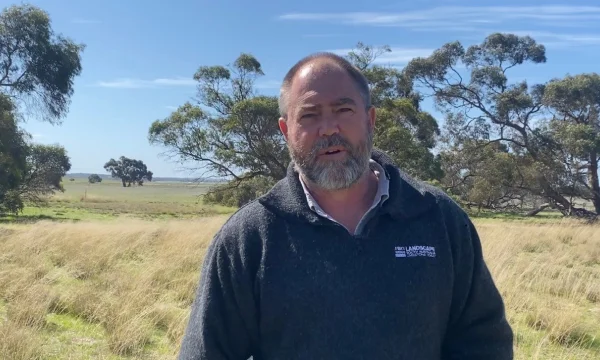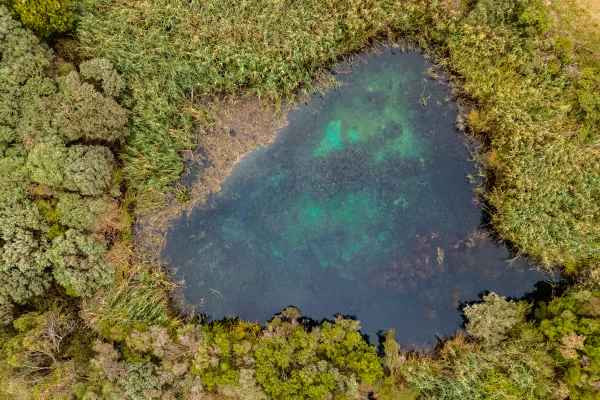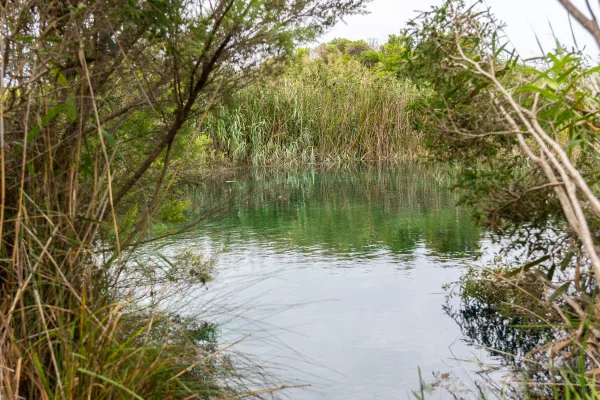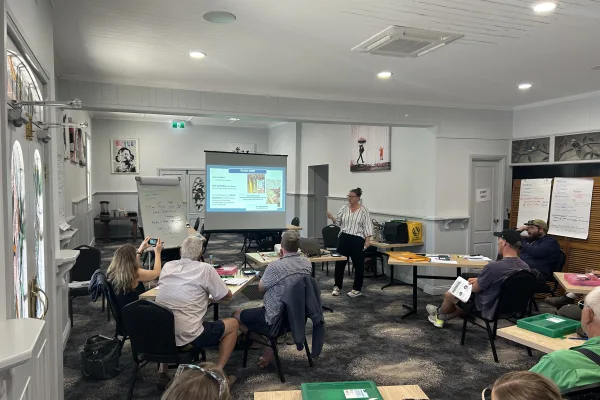Posted on
African lovegrass is fast becoming a serious weed in the upper Limestone Coast and landholders are urged to be vigilant in the control of the invasive weed on their property.
The Limestone Coast Landscape Board and the Department of Primary Industries and regions (PIRSA) are holding an important workshop to discuss:
- African lovegrass control methods, including complementary management approaches such as fire, stock grazing and chemical application options.
- The results of control measures at the Tintinara demonstration site including chemicals used and resistance testing.
- Opportunities for landholders to be involved in Stage 2 of the African lovegrass control Landholder Assistance Program commencing in the summer of 2024–25.
"African Lovegrass is a priority weed in the upper Limestone Coast and we are working in a number of ways to protect farming from its impacts and reduce its spread," said Limestone Coast Landscape Board Team Leader for Northern Operations Josh Rosser.
“We are encouraging as many landholders as possible to attend the workshop and participate in the Program, which supports them to meet their obligations under the Landscape South Australia Act 2019 to control the weed on their property,” said Mr Rosser.
The workshop is being held on Wednesday 25 September 2024 in Tintinara.
The workshop will launch the second round of funding as part of the Program for landholders to control the weed on their properties in the upper Limestone Coast and help reduce their economic burden of controlling the declared weed.
"We're looking to maximise the scale of the Program through a coordinated control approach including as many landholders and covering as many hectares as possible," said PIRSA Weed Control Coordinator, Simon Roos-Freeman.
“The Program is free for landholders to join and offers contractor spraying of African lovegrass on participating properties, reducing the impact and spread of this highly invasive grass,” said Mr Rosser.
“The agricultural impact of African lovegrass in the region is concerning as the invasive weed displaces productive plants in pastures, produces unpalatable tussocks that have low nutrition value to livestock and can create a fire hazard.”
“We have been controlling the weed on roadsides and working with affected landholders for a number of years as part of the Program but there is still more work to be done.
“Commitment by landholders to do their part to control the weed on their property is critical to containing infestations in the upper Limestone Coast. It also prevents further spread to the southern parts of our region where we are successfully controlling outbreaks,” said Mr Rosser.
“We are pleased to see community support for the program so far to reduce the impact and spread of this highly invasive grass to the agricultural industry and our environment. “
The Limestone Coast Landscape Officers are located across the region and can support landholders with plant identification, mapping and control advice to suit their property.
The African Lovegrass Control Program is jointly funded by the Commonwealth Government and Government of South Australia through PIRSA’s Priority Weeds, Cropping and Pasture Weeds Program and Limestone Coast Landscape Board’s landscape levy.




